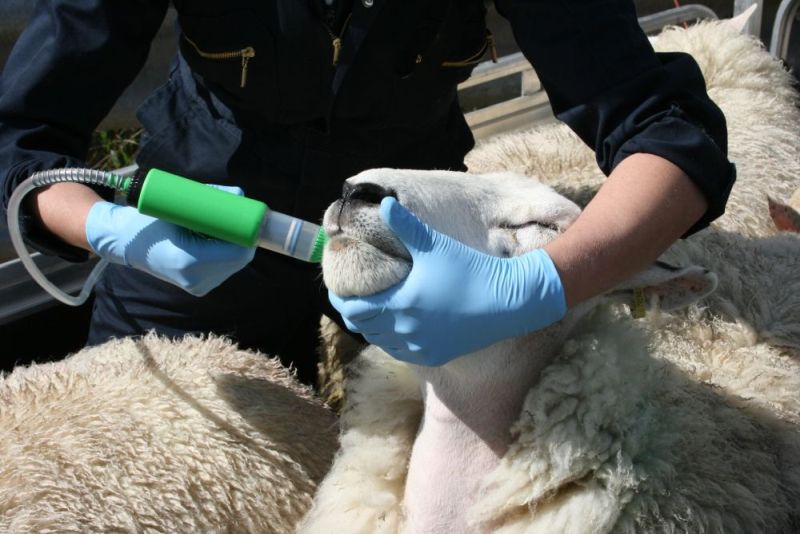
It is 'vital' for farmers to have a good handle on worm control in sheep flocks as the UK enters a wet period following a warm spell of weather.
The latest egg count data shows a medium count of roundworms in the sheep flock.
Lambs are more susceptible to infections caused by worms during the summer months.
Temperature plays an important role in the development and survival of infectious eggs and larvae at pasture, with faster rates of development at higher temperatures.
The warm weather experienced in recent weeks could therefore have led to an increased level of pasture contamination.
This, along with increasing grazing activity for recently weaned lambs that are yet to develop a protective immunity, can lead to parasitic problems for sheep farmers.
'Worm control is vital'
Hybu Cig Cymru – Meat Promotion Wales’s (HCC) animal health planning project, Stoc+, aims to address infectious diseases such as worms in sheep flocks.
It advises on effective treatment by encouraging producers to have a proactive health plan in place for their farms
Lowri Reed is a Stoc+ Project Officer. She said: “It is important to have a parasite control plan which forms part of a general animal health plan for the year ahead.
“Worm control is vital for good growth rates and profitable sheep systems, with even modest levels reducing performance and increasing costs.”
She added: “Farmers should be mindful, however, that they don’t overuse anthelmintic methods of controlling worms and contribute towards the development of resistance.
“We need to act now so that worms can be effectively controlled in the future and this is how the Stoc+ project will benefit our industry.”
Best practice in worm control
HCC has published a number of animal-health related booklets including ‘Worm Control in Sheep’.
It outlines the principles for best practice and states that responsible control of worms depends on careful understanding of the risks from contaminated pasture and strategies to use cleaner grazing; the use of faecal egg counts at appropriate times of the year; and an emphasis on only using the right product for the right animal at the right time.
“If worms are a problem on your farm, try the 3-Point-Plan for effective treatment,” said Lowri Reed.
“Weigh the lambs that need to be treated and use the recommended dose. Store the products correctly, always check the use-by date and use within the time stated on the label.
“Maintain dosing guns and injections, clean all equipment after use and check that drenching guns are working effectively.”
